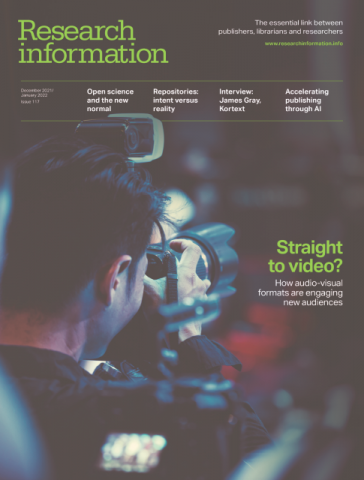Open science and the new normal
While open science has gained from the pandemic many challenges remain, writes David Stuart

While open science has gained from the pandemic many challenges remain, writes David Stuart
Options for disseminating research content have proliferated over the past decade, writes David Armstrong
The peer review-based publishing is under more pressure than ever to become faster and more open, writes Rachel Burley
Shane Rydquist and Minhaj Rais ask: has investment in new content types led to a new era in discovery?
Kortext founder and CEO James Gray reflects on founding the company, his wider career, and some life-changing moments
'Elitist world' discriminating against humanities must be avoided at all costs, write Martin Eve and Anthony Cond
Sami Benchekroun outlines post-pandemic trends in scholarly communications
Institutional repositories have not evolved in the way they were first intended, writes Alvin Hutchinson
Frances Downey, head of research and innovation culture at UKRI, explains the formation of the organisation’s Good Research Resource Hub
